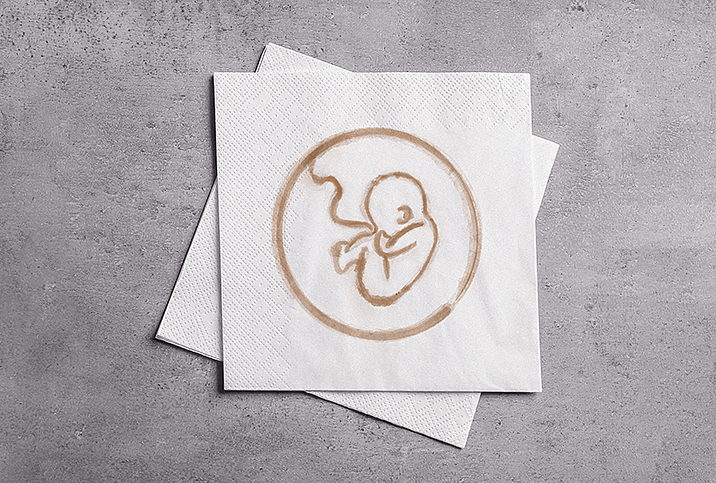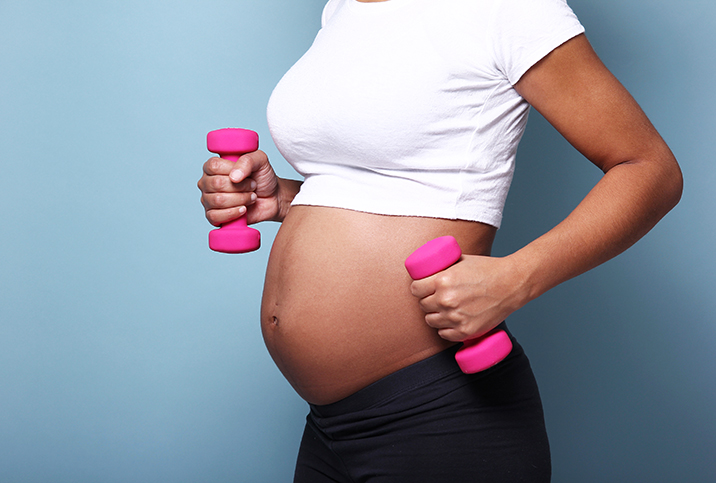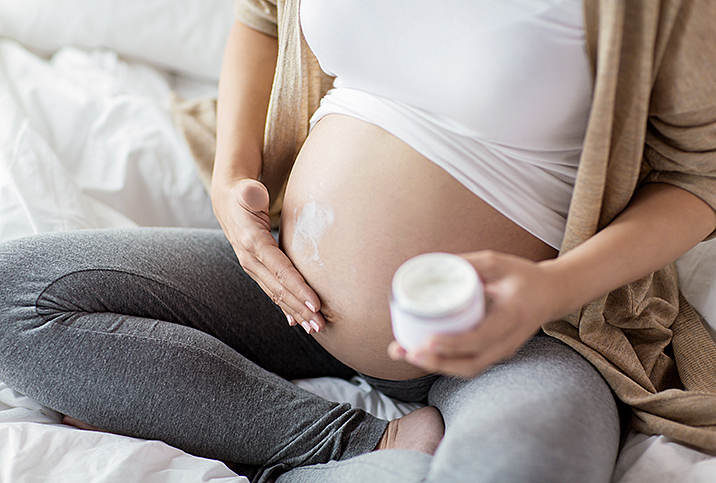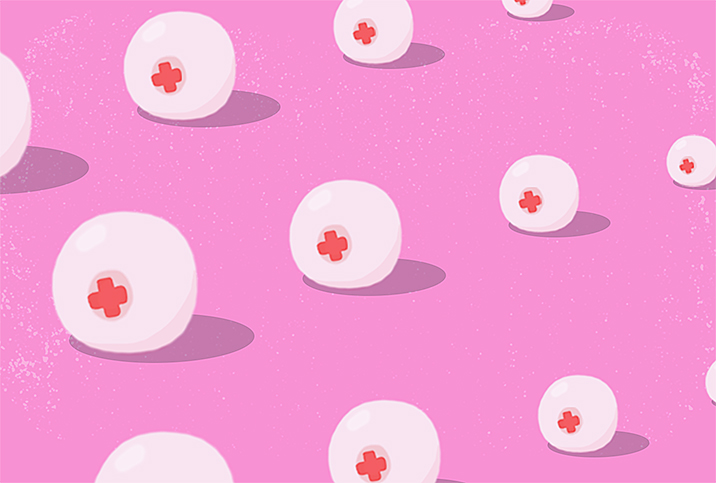Don't Neglect Your Dental Care During Pregnancy
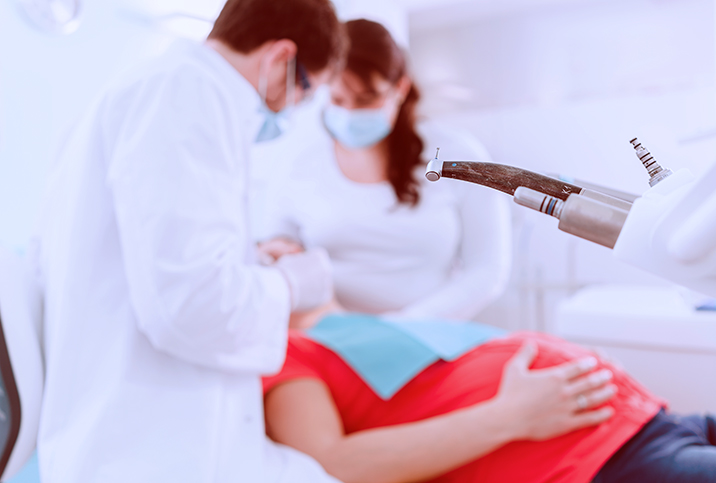
When Araceli Molino became pregnant with twins at age 30, everything seemed fine. She had plenty of energy, the dreaded vomiting never came and the pregnancy was going well.
By the second trimester, however, she started having problems with her teeth. She had full health insurance through her employer, so she regularly saw her gynecologist and dentist. Despite this, the bones in her mouth started deteriorating during her pregnancy.
More than 30 years later, the Madrid resident still suffers from oral health issues, including loss of teeth and a small tumor that was removed. Molino never had cavities before pregnancy, but while carrying her twin daughters, her healthy teeth began to loosen and, eventually, fall out.
"I have never met a woman who went through anything similar," Molino said.
Molino's case is rare; fortunately, most pregnant women do not experience major dental problems. However, dental care during pregnancy is vital, as the growing fetus affects the pregnant woman's oral health in several ways.
We talked to experts to find out what the most common dental health issues are and how you can avoid these complications during pregnancy.
Common dental health problems
The hormonal changes your body undergoes during pregnancy make you more susceptible to dental health problems. This means dental health checkups are essential throughout pregnancy to identify both minor and major problems.
"It's important for pregnant women to see a dentist early in pregnancy or during the preconceptual period to address all periodontal issues," said Kecia Gaither, M.D., board-certified in OB-GYN and maternal-fetal medicine and director of perinatal services/maternal-fetal medicine at NYC Health + Hospitals/Lincoln in the Bronx in New York City.
If oral conditions such as lesions or other problems are found, these should be treated by an oral healthcare professional as soon as possible to prevent the condition from worsening, added Cristina Ortiz-Diaz, D.M.D., M.S.D., a facial cosmetic and maxillofacial surgeon in Puerto Rico.
The following are some of the most common oral health issues pregnant women face:
Cavities
Pregnancy hormones can make the mouth a more acidic environment, which can increase the risk of cavities. Morning sickness also increases the possibility of erosion and damage to the surface of the tooth enamel. This acidic environment is ideal for bacterial growth, which leads to an increased risk of tooth decay.
Gingivitis
Gingivitis is more frequent in the second trimester and often related to poor oral hygiene, diet, immune response and hormonal and vascular alterations, explained Tibisay Sanchez Navas, D.M.D., a dentist in Valencia, Venezuela.
Teeth and gum infections
If you are experiencing any tooth or gum pain, it's important to see your dentist as soon as possible. If an infection is left untreated and becomes severe, bacteria and inflammatory processes could compromise the pregnancy.
"A large presence of bacteria in the mouth can enter the bloodstream through the gums and move to the uterus, increasing the chances of preterm birth," Sanchez Navas said.
Teeth loosening and tooth loss
"Progesterone and estrogen during pregnancy can loosen the tissues and bones keeping teeth in place, hence, loose teeth or tooth loss," Gaither said.
Teeth loosening is common, but fortunately, it is usually temporary, according to the March of Dimes. Teeth falling out during pregnancy is very rare and caused by underlying issues, such as tooth decay and poor oral hygiene, that may become more apparent while pregnant.
Other oral health issues
"There is also an increased risk of developing pyogenic granulomas during pregnancy, which is basically gum growths on the inflamed tissue which can bleed easily, cause discomfort and make eating and speaking difficult," Gaither said.
Ortiz-Diaz said other oral health issues reported during pregnancy include:
- Gingival hyperplasia (gum regrowth)
- Periodontitis (bone loss around the teeth)
- Oral candidiasis (thrush)
- Benign migratory glossitis (inflammation of the tongue)
- Aphthous ulcers (ulcers of the mucosa and gum)
"Increased hormones, such as estrogen and progesterone, in combination with bacterial plaque and acidity in the mouth predispose pregnant women to develop these oral lesions that are seen on the gum, mucosa and bone," Ortiz-Diaz explained.
Although these dental conditions do not usually jeopardize the mother or the baby directly, they may later lead to the development of new problems, such as periodontal disease, according to a 2010 literature review in the Spanish medical journal Advances in Periodontics.
"Early evaluation and treatment can help pregnant women maintain good oral health," Ortiz-Diaz said.
Dental care during pregnancy
"During pregnancy, it is essential to take care of your oral health," Sanchez Navas said.
Dental health issues often appear in the second trimester due to physiological changes. This increases the risk of cavities and gum disease, explained Maria Helena Tur Torres, M.D., an OB-GYN in Mallorca, Spain.
Dental evaluations and cleanings are recommended every six months. Ideally, you will have already been visiting the dentist regularly before becoming pregnant, but if not, book an appointment as soon as possible to help head off any issues.
During these regular visits, a dental hygienist removes plaque, tartar and other dental deposits from your teeth and looks for signs of gum inflammation.
To help reduce your risk of cavities and other dental health conditions during pregnancy, Tur Torres and Sanchez Navas said it's important to:
- Eat a balanced diet
- Avoid high-sugar foods
- Brush your teeth after each meal with fluoride toothpaste and a soft- or medium-bristle brush
- Floss to reach the spaces between your teeth your brush may miss
- Use a mild mouthwash containing fluoride to help protect your enamel
Do's and don'ts of dental care while pregnant
Fortunately, most dental treatments are safe during pregnancy, including:
- Regular dental checkups and cleanings
- Filling cavities
- Treating dental abscesses
- Performing extractions
- Undergoing a root canal
There are certain dental procedures that should be avoided while pregnant, however.
For example, X-rays are not recommended during pregnancy, Sanchez Navas said. But there are protective elements that can be placed over the patient's torso if X-rays are essential, she added.
Sanchez Navas said she also would not recommend teeth whitening during pregnancy. Undergoing such aesthetic procedures has not been studied to understand whether or not they are safe for pregnant women and their growing babies, she explained.
If you are experiencing any concerning dental health symptoms, talk to your OB-GYN and schedule an appointment with a dentist right away. Regular checkups with both of these medical professionals can help you and your baby experience a healthy pregnancy.












